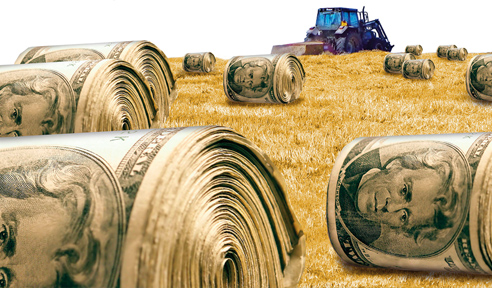 In today’s climate of the federal budget crisis, all manner of spending programs have come under the microscope. A few days ago, the New York Times ran an article examining potential plans to slim federal farm subsidies. The changes proposed are largely cosmetic however, with one subsidy simply replacing another to the tune of $40 billion saved over ten years–a drop in the bucket of the current federal budget.
In today’s climate of the federal budget crisis, all manner of spending programs have come under the microscope. A few days ago, the New York Times ran an article examining potential plans to slim federal farm subsidies. The changes proposed are largely cosmetic however, with one subsidy simply replacing another to the tune of $40 billion saved over ten years–a drop in the bucket of the current federal budget.
But, spending cuts from such farm programs offer little hope of closing the deficit anyway; total farm subsidy spending by the federal government currently amounts to only about half a percent of its budget. However, the idea of rolling back any agricultural spending at all brings up an interesting question. Why do we subsidize farming in the first place? The increasing mechanization of the farming industry has led to massive productivity increases. It seems as though the industry should tend towards larger, more efficient farms that take advantage of those newly created economies of scale. Yes, that would seem to imply the unfortunate disappearance of the family farm in place of a larger, more industrial one, but why should farming be sheltered from market forces while any other industry is expected to cope? Farmers working large plots of land are doing fine, even well, earning an average income, including payments from the government of about $200,000 a year. It doesn’t seem like there is a conspicuous market failure that warrants correction.
—Christopher T. Hopkins

Be the first to comment on "Are Federal Ag Subsidies Necessary?"